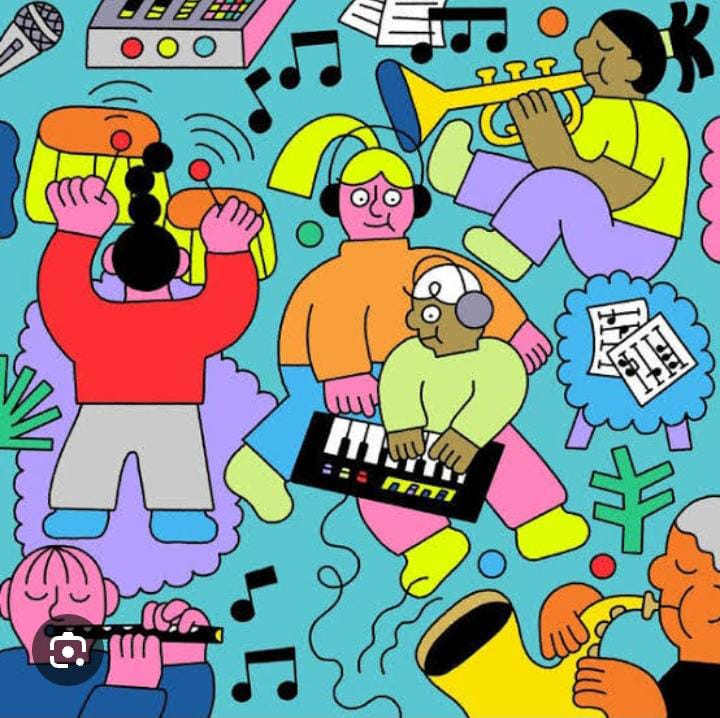
The Value of Music Education in Schools
Music education has long been cherished for its ability to enrich the human soul and elevate our cognitive capabilities. Schools across the globe have implemented music programs recognizing this potential. These programs nurture talent and provide essential music teacher resources that support educators in guiding young minds. With a focus on harmony, rhythm, and melody, these resources empower teachers to instill a lifelong love of music in their students.
Incorporating music education into school curriculums is a foundation for students to explore their creative potential. Music classes encourage students to think outside the box, challenge their problem-solving skills, and cultivate patience and perseverance. These qualities are invaluable in shaping well-rounded individuals who are prepared to navigate the complexities of the modern world.
Cognitive Benefits of Learning Music
Engaging with music profoundly impacts brain development. It enhances memory, improves spatial-temporal skills, and fosters critical thinking. Studies show that children who receive music education score higher in cognitive tasks and exhibit exceptional memory retention. Research highlights the connection between arts education and brain function, compelling the case for integrating music into educational curriculums.
Furthermore, learning music is akin to a full-brain workout. It activates almost all brain regions, including those responsible for emotions, motor skills, and language. This comprehensive engagement promotes increased brain plasticity, facilitating better learning and academic performance in other subjects.
Music Education and Emotional Development
Beyond cognitive advancements, music education significantly influences emotional growth. Learning to play an instrument or comprehend complex musical pieces requires emotional expression, deepening students’ emotional understanding. For instance, students often relate personal experiences to music, using it as a medium for self-expression and emotional release, thereby developing a robust emotional intelligence.
Music’s impact on emotion is profound. It can transport listeners to different emotional landscapes, allowing them to experience joy, sadness, and wonder. This emotional engagement often helps students develop empathy and understanding in educational settings, fostering a nurturing and inclusive environment.
Social Skills Fostered Through Music
Music education also plays a pivotal role in developing social skills. Group activities such as choir singing or band performances necessitate teamwork, communication, and collaboration. These experiences equip students with skills essential for social interaction, and they often form friendships and build networks through their shared love of music.
Participating in music ensembles enhances a sense of community and belonging among students. It teaches them to value different roles and contributions, promoting mutual respect and cooperation. These experiences are invaluable as they mirror the dynamics of real-world social interactions and professional settings.
Music as a Tool for Academic Success
The integration of music education into academics provides a multifaceted approach to learning. Research indicates that students involved in music programs excel in subjects like math and reading. This phenomenon can be attributed to music’s rhythm and structure, which mirror mathematical patterns. Case studies of music-infused curriculums reveal a noticeable improvement in overall academic performance, leading to holistic scholarly success.
Moreover, the discipline and practice inherent in music study translate effectively to academic pursuits. Students who regularly practice music demonstrate improved focus, better time management, and enhanced problem-solving abilities—skills directly applicable to their academic endeavors.
Overcoming Barriers to Accessing Music Education
Despite its benefits, many students need help accessing music education, including funding gaps and inadequate policy support. Addressing these challenges is vital for ensuring that every child has the opportunity to learn music. Policy interventions and increased funding can enhance the reach and quality of music programs, as evidenced by initiatives across various educational communities that prioritize equitable access to arts education.
Community partnerships and philanthropic initiatives have also played significant roles in bridging the gap. By supporting music programs through donations and volunteer efforts, communities are paving the way for future generations to experience the transformative power of music education.
Innovative Ways to Incorporate Music in Everyday Learning
Educators are increasingly adopting innovative strategies to integrate music into daily learning. Technology plays a significant role, offering interactive tools and platforms that make learning music engaging and accessible. Teachers can use rhythm and melody to simplify complex concepts in science or history, transforming traditional learning into an imaginative and memorable experience.
Additionally, cross-disciplinary approaches, where music is applied to explore themes in literature or history, exemplify innovative educational strategies. Such approaches nurture curiosity and connect students to the world holistically, enriching their educational journey significantly.
Conclusion: Music as a Key Element of Holistic Education
Music education is not just an artistic endeavor but a fundamental component of a comprehensive education system that cultivates creativity, empathy, and intellect. By advocating for music in schools and ensuring access to quality resources, we lay the groundwork for a generation that thrives intellectually and emotionally.
The profound impact of music education extends far beyond the classroom, influencing personal development and societal well-being. It empowers students to be innovative thinkers, compassionate individuals, and engaged citizens, underscoring the indispensable role of music as a catalyst for personal and communal growth.

